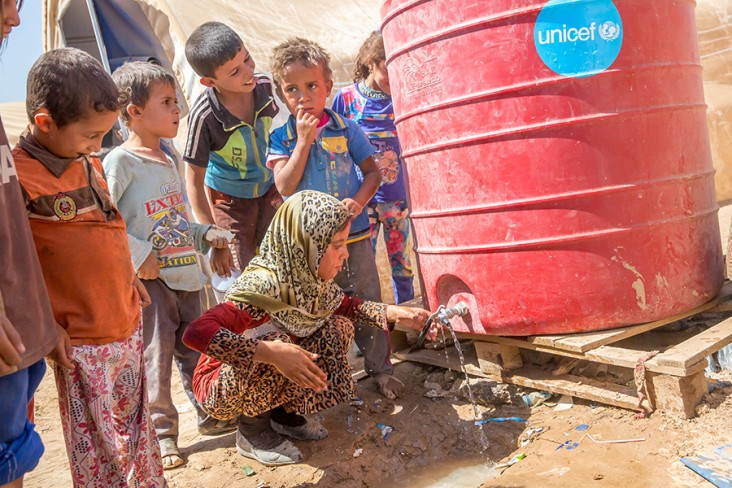- What We Do
- Agriculture and Food Security
- Democracy, Human Rights and Governance
- Economic Growth and Trade
- Education
- Environment and Global Climate Change
- Gender Equality and Women's Empowerment
- Global Health
- Humanitarian Assistance
- Transformation at USAID
- Water and Sanitation
- Working in Crises and Conflict
- U.S. Global Development Lab
Speeches Shim

Key Developments
The Government of Iraq (GoI) announced in mid-October the rapid closure of internally displaced person (IDP) camps across federal Iraq; as of mid-December, the GoI had closed or consolidated 15 IDP camps and reclassified two IDP camps as informal sites.
The GoI and Kurdistan Regional Government signed an agreement in October facilitating returns of displaced people to Sinjar following improved coordination on security, reconstruction, and other issues.
IDP and refugee households face heightened protection risks following recent camp closures and ongoing COVID-19-related restrictions.
Background
The situation within Iraq remained relatively stable until January 2014, when Islamic State of Iraq and Syria (ISIS) forces began seizing control of parts of northern and central Iraq. Significant population displacement ensued as civilians fled to areas of relative safety, such as the Iraqi Kurdistan Region, to escape fighting. The ongoing conflict has displaced nearly 3.4 million people within Iraq since early 2014, according to the International Organization for Migration (IOM).
On August 11, 2014, USAID deployed a Disaster Assistance Response Team (DART) to help coordinate USG efforts to address the urgent humanitarian needs of newly displaced populations throughout Iraq. DART and U.S. Department of State Bureau of Population, Refugees, and Migration (State/PRM) staff are working closely with local officials, the international community, and humanitarian actors to identify critical needs and expedite assistance to affected populations. To support the DART, USAID also established a Response Management Team (RMT) based in Washington, D.C.
On October 10, 2016, U.S. Ambassador to Iraq Douglas A. Silliman re-declared a disaster in Iraq for Fiscal Year 2017 due to the ongoing complex emergency and humanitarian crisis.
Although major military operations against ISIS in Iraq have ended, approximately 1.67 million people remain displaced and these Iraqis are among the most vulnerable as many have been displaced for more than three years and will likely face significant challenges returning home. USAID is committed to help them safely return to their communities and will continue to provide assistance to displaced people as well as the increasing number of returnees.

Comment
Make a general inquiry or suggest an improvement.